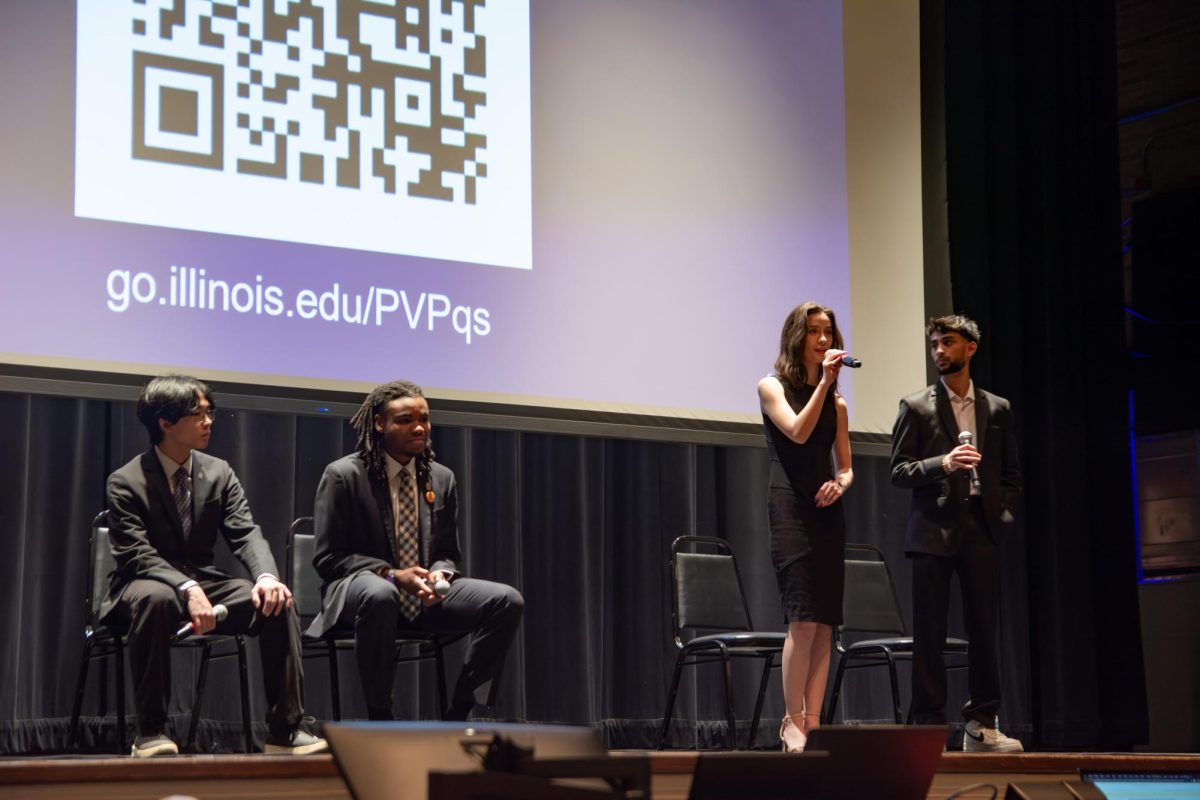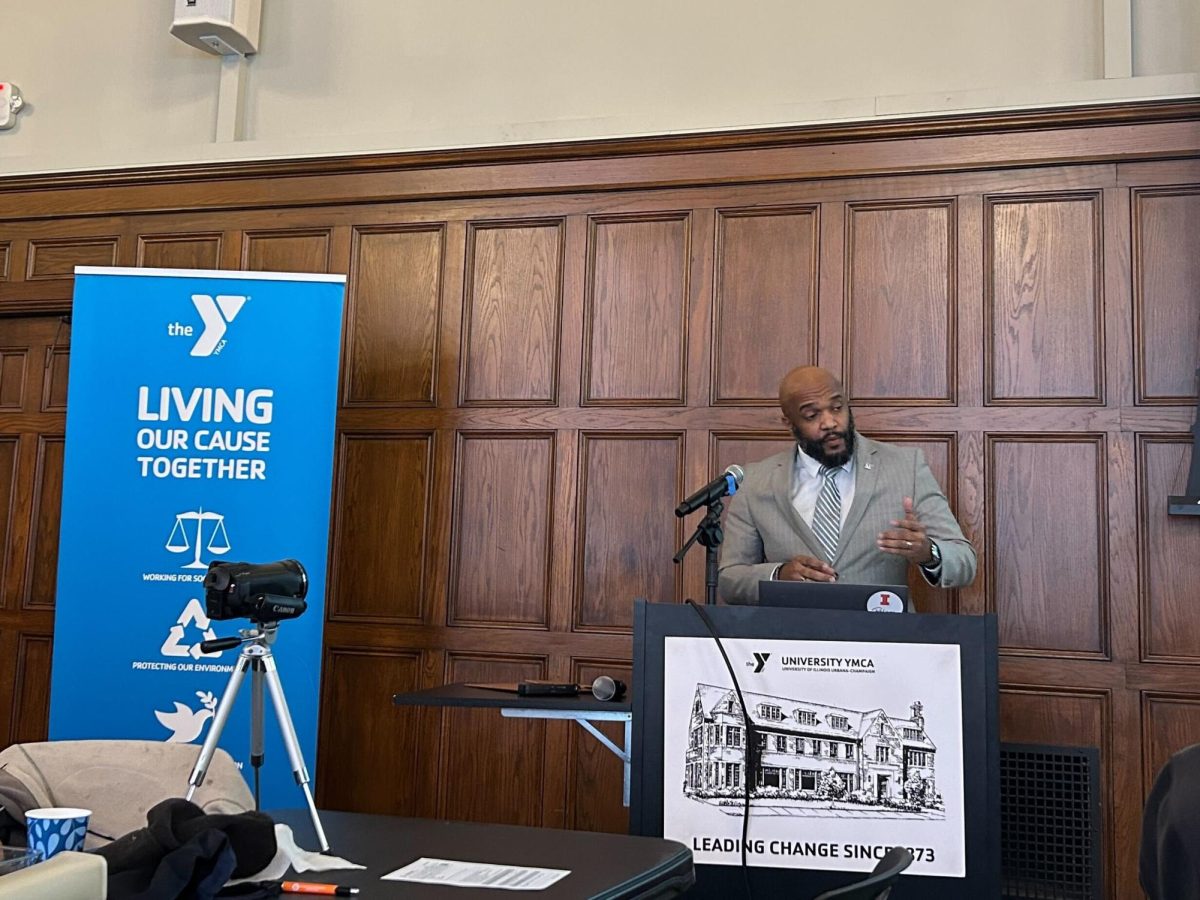Erik Scott, history professor and director of the Center for Russian, East European, and Eurasian Studies at the University of Kansas, gave a lecture at Coble Hall on Thursday on his new book, “Defectors: How the Illicit Flight of Soviet Citizens Built the Borders of the Cold War World.”
The book, which has been 10 years in the making, shines a new light on defection beyond the Cold War, revealing connections with borders and migration flow.
“This book is an attempt to really understand defection as a migration issue and look at the ways in which it formed our contemporary refugee system as well as its limitations,” Scott said.
“Defectors” follows the story of several defectors from the Soviet Union to the West. It brings together decolonization, migration and international law, along with their navigation of these systems.
In doing so, defectors influenced the creation of current global borders and the international refugee system today.
Get The Daily Illini in your inbox!
“I came at it knowing about defection through spy novels, movies and memoirs,” Scott said. “But in looking at it more closely, and at looking over this evolution over time, I really came to understand it as a much more complex phenomenon.”
Scott discussed how defection was much broader and more nuanced than current perception might suggest.
“I really came to understand it as a much more complex phenomenon forged by transnational exchange and covering a lot of complex experiences and environments in the Cold War World,” Scott said.
During his research for the book, Scott lost access to the Russian and Ukrainian archives due to the current war. However, he stated that he had already completed most of his research by then.
“The research is often incomplete in the best of circumstances,” Scott said. “It only gives you a piece of what actually happened. But the connections I was able to find among the things I found in different places really made up for it.”
Scott connected his work with contemporary issues and talked about how migration flow and border security can be viewed through a different lens with his book.
“Our way of thinking of refugees remains limited by a Cold War framework,” Scott said. “And I think we need to think seriously about how we can extend support to people who are fleeing environmental devastation or economic hardships. People’s motivations are often much more complicated and involve a range of different, different reasons.”
For his next steps, Scott will likely be writing a book on the collapse of the Soviet Union from the perspective of sports and the Olympics.
“I’m looking at how the multi-ethnic Soviet Union broke apart with non-Russian athletes and activists using sports as a way to gain international legitimacy.”





